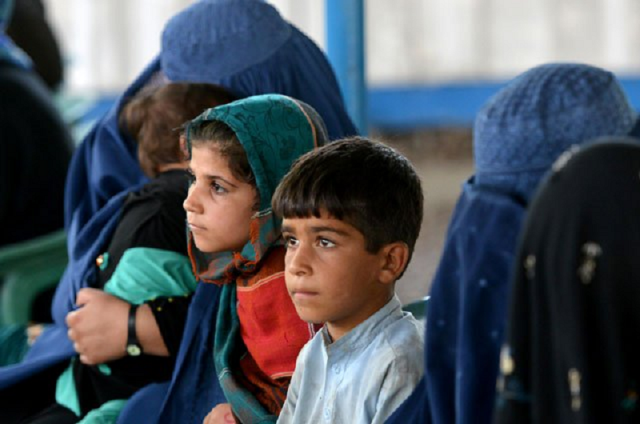US requests Pakistan not to deport 25,000 ‘vulnerable’ Afghans
These individuals are eligible for special visas and asylum to the United States

The United States has shared a list of 25,000 Afghans with a request not to deport them as they may face retribution as Pakistan is set to launch a drive against all foreigners living in the country illegally after the expiry of November 1 deadline.
The 25,000 Afghans, who moved to Pakistan after the Afghan Taliban returned to power in August 2021, had worked for the US or its contractors during its military campaign in the war-torn country.
These individuals are eligible for special visas and asylum to the US as their association with the US-led foreign forces could lead them into trouble at the hands of the Afghan Taliban government.
Since the government announced a policy to evict all illegal foreigners mostly Afghans, Washington is in touch with Islamabad at the highest level to ensure such Afghans are not deported.
A senior US official on Tuesday confirmed that Washington had shared with Pakistan a list of 25,000 Afghans, who were eligible for relocation and resettlement in the US.
“Helping facilitate the safe and efficient resettlement and relocation of eligible Afghans to the US is a priority for the United States. As Secretary Blinken has said, it’s a deeply held commitment, and an on-going one,” said the senior US official.
Also read: Afghans return to Taliban rule as Pakistan moves to expel 1.7 million
The official said since long before Pakistan announced that it would deport undocumented foreign nationals after October 31, the United States had been working to ensure the protection of Afghan refugees and asylum seekers, including those in the US resettlement and immigration pipelines.
“The United States is engaged in intensive diplomacy with the Government of Pakistan to ensure that vulnerable individuals are not placed in harm’s way. From Washington and in Islamabad, we have engaged on this issue at the highest levels of the Pakistani government,” said the official.
The official further said that to help protect vulnerable individuals, the US had shared a list with the Government of Pakistan of more than 25,000 Afghan individuals in the US resettlement and relocation pipelines.
“We are in the process of sending letters to those individuals that they can share with local authorities to help identify them as individuals in the US pipeline. And we continue to call for the establishment of a protective screening mechanism.”
Also read: Deadline inches closer for Afghan refugees
The official said there were multiple categories of people who might need to be relocated or resettled, including asylees, refugee seekers, US citizens and their families, and individuals with potential claims to US citizenship. “Many within these groups would be placed at risk if repatriated to Afghanistan,” the official cautioned.
“We are working tirelessly to ensure these individuals are protected. That includes on-going discussions with the Government of Pakistan on how we can put in place needed capacity to process resettlement cases as quickly and efficiently as possible,” the official further said.
Meanwhile, US Ambassador Donald Blome met with Caretaker Foreign Minister Jilani today to discuss a broad range of critical bilateral issues, including the safe and efficient processing of Afghan citizens eligible for relocation or resettlement in the United States, according to the US Embassy spokesperson.
“The ambassador highlighted the two countries’ mutual interest in ensuring the safety and security of refugees and asylum seekers, and the importance of putting in place appropriate screening mechanisms so that individuals with legitimate claims of credible fear are not placed in harm’s way,” the statement added.



















COMMENTS
Comments are moderated and generally will be posted if they are on-topic and not abusive.
For more information, please see our Comments FAQ